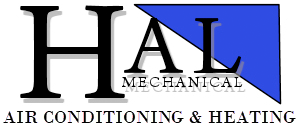The fastest way to recognize one from the other is iron despite the various differences between ferrous and non-ferrous metals. While non-ferrous metals do not, ferrous metals contain iron. Also, ferrous and non-ferrous metals contain their own distinct properties and these properties determine how they can and cannot be used. With this in mind, we at Hal Mechanical would like to discuss the difference between non-ferrous metals and ferrous metals when it comes to sheet metal fabrications.
History of Ferrous and Non-Ferrous Metals
With the discovery of copper marking the end of the stone age, copper and bronze are the most recognizable non-ferrous metals. The use of ferrous metals became more popular, around 1,200 BC, along with the birth of iron production, ultimately leading us into the iron age.
Classification of Ferrous Metals
Shipping containers, construction, piping, automobiles, and others are more prominently used in ferrous metals. The best long-term options include wrought iron and stainless steel with a vulnerability to rust when exposed to moisture. The classification of ferrous metals includes most ferrous metals that are magnetic and are used in the production of refrigerators as well as motor and electrical pieces.
Carbon Steel: Carbon steel is used in the manufacturing of machine tools, drills, and blades because it is one carbon steel is used in the manufacturing of drills, machine tools, and blades.
Cast Iron: Used to manufacture engine blocks and manhole covers, cast iron is strong and yet very brittle.
Stainless Steel: Due to its ability to self-heal, stainless steel is one of the most durable of the ferrous metals. Being durable and offering a better life-long value than most steels, it is not only heat and corrosion resistant.
Wrought Iron: Another durable member of the ferrous metal’s family is wrought iron. With very little carbon content, wrought iron is an alloy. Wrought iron is resistant to corrosion and oxidation due to the addition of slag during manufacturing. Because it is low in fatigue strength, it is used in chains, barbed wires, and railings.
Non-Ferrous Alloys
Their malleability as well as a higher resistance to rust and corrosion gives them a few advantages over ferrous metals since they have a lack of iron in non-ferrous metals. Liquid pipes, gutters, roofing and others are often produced with non-ferrous metals.
Aluminum: Greatly for use of manufacturing food cans, utensils, aircraft, and cars because of aluminum’s light weight.
Brass: Brass is a combination of copper and zinc and is commonly used in ornaments and for electrical fittings.
Copper: Copper is malleable and has high conductivity used in the electrical industry. Used in statues, bearings and roofing, copper is also a naturally occurring substance.
Zinc: Zinc is often used in galvanizing or applying a protective coating to iron or steel to prevent rusting as it is known for having a very low melting point.
Custom Sheet Metal Fabrication & More in Aliante, Anthem, Desert Shores, Eldorado, Enterprise, Green Valley Ranch, Henderson, Inspirada, Mountain’s Edge, North LV, Peccole Ranch, Paradise, Providence, Rhodes Ranch, Seven Hills, Silverado Ranch, Spring Valley, Summerlin, Sunrise Manor, The Lakes, Tuscany Village & Las Vegas Nevada
With extensive fabricating and welding experience in a wide variety of commonly used ferrous and non-ferrous metals, Hal Mechanical is you’re your leading expert to help you sheet metal fabrications in the Greater Las Vegas, NV area.






